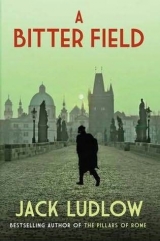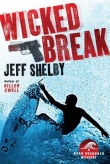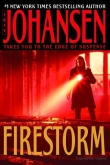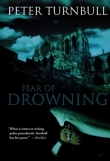
Текст книги "A Bitter Field"
Автор книги: Ludlow Jack
Жанр:
Шпионские детективы
сообщить о нарушении
Текущая страница: 4 (всего у книги 22 страниц)
CHAPTER FIVE
It was not a long wait, but agonising nevertheless, trying to work out what they would do, with the notion of them firing on the passing barge a worry. Before him the surface of the pavé road, reacting to the post-midday heat of the sun on the surface, gave the impression of being distorted, a mirage in fact, and he quickly realised it presented a problem: that wide and dark liquid streak on the road was fading too fast with evaporation.
The barge being invisible he had to duck through the screen of trees to locate its position, then relate that to the blocking lorry, relieved to see it seemed to be past the point of any danger, just chugging along undisturbed and unremarked upon, being such a common sight.
‘Peter, a match.’
Peter passed over his box of red-tipped Swan Vesta, which Cal slid open to the maximum he could achieve without the whole contents tumbling out, taking out four and holding them together. Lit simultaneously on the sandpaper to create a good flame, he then ignited the rest in the open box.
When that flared up he knelt and threw the whole thing into the long streak of stinking, rapidly evaporating petrol that had been pumped out as the lorry progressed from the farmyard to its blocking position, jumping back as the fuel flared up with a whoosh that, had he not moved quickly, would have cost him his eyebrows as well as the front of his hair.
The blue flame snaked towards the lorry tailgate at some speed until it reached the bale of hay that lay below the dropped tailgate and that, soaked with petrol by his French helpers before being thrown off, went up like a Roman candle firework, the fire licking around the drenched planked floor until that too was alight, rising to surround the large half-empty drum.
They watched as heat did the rest and in short order the drum went up with a thudding boom, sending streaks of burning fuel in all directions, especially into the ditch, and setting fire to the canvas covering of the body as well as the cab. Cal had taken up a position on the canal side of the road, close to the treeline, lying behind the ZB26 on its bipod and squinting through the sights, waiting for what he was sure must come.
With the road blocked the Jeunesses Patriotes could not use their cars and with that furiously burning lorry they could not use the canal side or the ditch either; they would have to take to the open fields to the south, in this case one of ripening wheat. The first sign of movement was, as Cal expected, tentative and cautious, maybe one or two at most moving in a wide arc.
As soon as he saw their warped shapes through the smoke, flames and air distortion he put a single shot as close over their heads as he dare, on the grounds that you don’t have to kill a man to make him take cover, the crack of a passing bullet will do the trick just as well.
Peter had taken up a position behind one of the trees that lined the canal to block that route, and he would do the same to anyone who showed themselves – less of a possibility given the flaring fuel had already set light to the lower branches of the tree against which the lorry was resting and was beginning to blacken the whole trunk.
The flames were licking outwards on the slight breeze and a column of black smoke now rose into the sky, one that would be visible for miles and might attract the kind of attention that would force the opposition to abandon their aim. As if to underline that, there was a second huge boom as the fuel tank of the lorry went up.
The next act was to let the enemy know what they would face if they tried to break out into that open field. With deliberate aim he emptied the magazine in one burst covering the immediate area by which they would need to advance, which set into the air the heads of corn at the top of the stalks. The message was plain: that was not a safe way to go.
What followed was a surprise that had him rolling sideways at speed to get behind a tree, trailing his weapon behind him. The two flying grenades emerged from those flames and black pall of smoke to land on the road and bounce forward with a rattling sound, coming to a halt halfway between him and the conflagration before they exploded, sending bits of shrapnel thudding into the tree trunks and sending a blast of air past Cal Jardine’s ear.
‘Peter?’ he yelled as the sound and blast dissipated.
‘I’m good.’
Cal rolled back out onto the road and ramming down the bipod he jammed home and emptied another magazine. This time there was no chance to take careful aim, though as yet reluctant to kill he fired too high to hit anyone, still hoping the sound of passing shot would make them hesitate and take cover.
Peter Lanchester, falling back from tree to tree, was close to him now and able to say that, with the flames licking the canal bank, there was little chance of any attack from that quarter unless they were prepared to swim. Cal shouted back, asking him to keep going backwards, to get to the farmhouse and order that second lorry on its way.
The words were barely out of his mouth when bits of tree began to fly, chips blasted off by sustained and accurate rifle fire of an intensity that would make it dangerous for Peter to move into the open.
This was not suppression fire, it was meant to kill, so it was time to take off the gloves. The next burst of fire Cal put into the edge of the wheat field sliced low through the stalks, and as soon as he had emptied the mag he slotted another one home, calling to Peter to move when he fired.
‘How’s your ammo?’ Peter yelled.
‘One in the slot and two mags spare, one I need for my own move back.’
‘Any more available?’
‘There’s a bargeful on the way to the docks.’
‘Time I entered the fray, old boy.’
‘Right,’ Cal replied, smiling at the studied unflappability, which was Peter’s trademark act and it was a performance; having seen him in action he knew him to be a very effective fighter.
Half emerging from behind his tree Peter held the Mauser forward in both hands, spreading his feet to fire, which he did rapidly, inching left as he did so, then scooting away at a crouch as soon as he heard the click of the empty chamber.
He threw himself to the ground and rolled off the road as fire was returned. Covered by the ditch he slotted home the spare mag before crawling back towards the buildings, this while Cal put single shots into the field.
He stopped because the return fire had ceased, which did not indicate to him that the Jeunesses Patriotes would be giving up the fight, more that they were trying to figure out some new manoeuvre to circumvent that burning lorry and the light machine gun fire. Thankfully those two grenades seemed to constitute their entire stock; there had been no repeat.
The sound from behind him of the lorry engine was welcome and he suspected they would hear it too – he had given instructions to gun it up to a screaming pitch for that very purpose. As he heard the note change and the first gear noisily engage, he opened up with single shots again, a spread of fire in an arc designed to curb any response.
In that he failed; the sight of that lorry, lumbering out from behind the nearest building, brought the heaviest volley yet from that wheat field, but nothing struck home till it was already halfway to the bridge, which hinted at frustration and pleased Cal – he hoped what they thought they were seeing was the cargo of weapons they so hankered after disappearing beyond their grasp.
The fire had steadied by the time it lurched onto the bridge, with a multitude of holes appearing in the canvas covering, other shots slamming into the side planking, but in truth the only person at risk was the driver – a separate instruction had been for the others to jog behind the cab or, at a crouch, the wheels, which would give them protection, that enhanced by the bridge parapet.
Within seconds it was out of sight but to the man lying on the roadway it seemed like an hour till the firing ceased. Cal’s mouth was like leather and the acrid smoke that filled the air was affecting his throat. The blocking lorry was still blazing away merrily, the heat consuming the non-wooden parts of the vehicle, the tyres especially, which increased the choking smoke.
Yet it was obvious the height of the inferno was past as most of the fuel had been consumed. It would burn for a long time yet and the smoke might increase with the tyres smouldering, but it was diminishing as a blockage and might, in fact, provide cover for an advance.
It was time for him to depart as well, though that was the tricky bit; while he could use the trees as cover to get close to the bridge, he would have to come out into the open to get on to the crossing and for several seconds, even moving flat out, he would be exposed. Even an idiot would know where to concentrate their fire; every weapon that could be brought to bear would be aimed at that gap between the last tree and the low stone parapet.
A glance across the canal showed that swimming was not an option; the bank opposite was too steep to get out, and while he might be offered assistance from those who had already crossed, it was not aid he could count on. His instructions had been for the lorry to go on and for Peter to wait by the car, so it was too risky to hope anyone else might anticipate a need he had not thought to include.
Taking the last spare magazine from the backpack he stuffed it into his shirt, flinching slightly as the cold metal touched his hot sweating skin. Then, grabbing the handle of the ZB26, he tossed the backpack head-high and out into the open, moving as soon as the first shots began to rip it to shreds, thankful he was not facing any kind of automatic weapon; the worst he could suffer was a second bullet from a bolt-action rifle and it took a moment to work that, even for a professional soldier.
Also he hoped for an element of surprise, which is not conducive to good aiming, especially in the untrained. There was no time to go round the parapet and no thought of hurt as he dived over it, landing on his shoulder and immediately hauling himself up, ignoring the scrapes to skin and the painful jarring of bone. He rested the muzzle on the top of the stones and put half a dozen bullets into the wheat field as a warning for his opponents to stay still.
Crouched down he counted to ten, then raised himself again to fire off another short burst to create the impression he was going to hold this new position. In reality he was crawling away within a second, using his knees and elbows, not easy with the ZB26 as well, to get to a spot where the tree cover was thick enough for him to stand up and run.
Peter Lanchester was beside the idling Simca and the passenger door was open. Within seconds both men were inside and the car was moving, Cal holding the light machine gun upright between his knees and breathing as if he had just finished an Olympic marathon while simultaneously reloading.
‘Left-hand fork, Peter,’ he gasped.
‘You sure? The lorry went right.’
‘Yes.’
The car swung round the bend and took only seconds to cover the hundred yards or so Cal Jardine wanted, during which time he had wound down the car window and manoeuvred the muzzle out, forced to lean back so it was resting on the sill. With trees on both sides of the canal and the still-billowing smoke, what he was looking for was not fully visible until he was right abreast the main target at the front.
Slowly and deliberately he put several bullets into the front wheel of the Hispano-Suiza roadster, shredding the tyre in the process, before shifting to blast the cars lined up behind, this as Peter, unbidden, drove the car at low speed so all Cal had to do was work the trigger.
His last bullets he saved for the rear vehicle of the Jeunesses’s convoy, a low-slung cream and black Citroën. This he shredded from one end to the other, tyres included, and, as soon as the magazine emptied, Peter pressed the accelerator to the floor, with Cal dropping back into the seat exhausted.
It took a second or two to get his breathing back to something like normal, but soon he was pointing out to his companion that, narrow and empty as it was, he was driving dangerously by going too fast as well as being on the wrong side of the road – just as well, as, before ten minutes had passed, they were forced to pull very hard to the side to let past one rushing police car, soon followed by two more.
The fellow driving the lorry had been told to take himself and his companions home using back roads and to find a way to hide the vehicle. The Simca presented another problem; it was not a model of which there were many about, being a new design and fresh off the production line.
So it was too obvious, given its colour and the fact that it would likely be reported to the authorities, number plate included. They had taken the route that led north to the main highway, then followed that west to the outskirts of town where they stopped to both breathe and consider.
‘I take it,’ Peter asked, ‘that I am sitting in what was your way out?’
‘I was going to drive back to Paris once the cargo was loaded, sell it, and then head home by train.’
‘And now?’
‘Too risky, given we have no idea of the depth of what we are fighting. I’ll have to get rid of it and think of something else. You?’
‘I told you, Cal, I’m sticking like—’
‘I got it the first time.’
‘And you still intend to oversee the loading of the weapons?’
‘That is what I am contracted to do.’
Peter nodded, he had expected no less; in a game fraught with danger, the possibility of dying in the act was a given – in fact, no different to being a serving soldier. Then there was the problem of reputation, quite apart from any sentiment to the republican cause; running guns was as much Callum Jardine’s profession as intelligence gathering was that of Peter Lanchester. You just did not quit when the going got hard if you wanted to stay in the game.
Getting back into La Rochelle, Cal explained, presented little difficulty; they could walk into the suburbs and catch the bus. First the car had to be put behind some trees and then, while they were out of sight of the road, they had to clean themselves up using saliva, a handkerchief and the car’s mirror, though they could do nothing about the foul after-combat taste in their mouths.
Personal clean-ups completed, Peter went to work on the car in the same way he had on that La Rochelle apartment, wiping the steering wheel, door handles and all of the instruments and switches, removing all traces of their fingerprints, Cal watching him silently and in doing so was gifted a sudden realisation, brought about by what was happening now, added to the feeling of curiosity he had experienced prior to abandoning Peter’s apartment that morning.
Peter’s blazer was marked from where he had rolled across the road into the ditch, but apart from that he was more or less all right and a bit of hand brushing removed most of the dried muck. Cal was more scratched and bruised and his shoulder ached, while his shirt, quite apart from the stains, was ripped both at the elbows and the front, which left his companion unhappily lending him one of his spares.
‘Jermyn Street for you, old chum,’ Peter insisted, ‘the minute we get back to Blighty. I’ll be having a few items in replacement on your Turnbull & Asser account.’
Cal was not listening; he was crouched down breaking up the ZB26, laying the parts on the shirt he had just removed. ‘This will have to go in your case, Peter, I’m afraid.’
‘What!’ Peter demanded, looking over his shoulder from the tree against which he was pissing away the last of his two beers.
‘You don’t expect me to just leave it.’
‘Might I point out to you, old chum, that it is somewhat oily, and that shirt of yours is not going to stop it damaging the rest of my kit, not least my cream linen suit.’
‘Still got that knife of yours?’
‘I have.’
Passed over, Cal used it to cut out the upholstery from the back seat of the car, wrapping his broken-up weapon in that before closing the case and handing it over.
‘There you are, Peter, satisfied? Best I carry it, given what it contains. Now let’s get back onto the road and get walking till we find a bus stop.’
‘I’m curious as to how you are going to reconnect with your barge.’
‘So am I.’
The walk was not far, though in still-flat open country at once fraught with the fear that some of their recent opponents might appear. Once in a built-up area it became easier, and having found a stop, they took a hot and crowded bus marked Centre Ville into town.
There was a definite frisson in the air when they got there, people talking and gesticulating, a lot of gendarmes around and the ringing of the traffic-clearing bells of police cars, which forced them into the backstreets and a welcome drink in the dark recesses of a small, dingy and far-from-clean workers’ bar.
‘And to think I always equated you with luxurious living.’
‘We don’t know what connections these sods have, Peter, or yet how they got onto us.’
‘On to you, Cal,’ he replied, pedantically.
‘And I thought you wanted to be part of my gang.’ Cal joked, even if, deep down, he felt Peter to have been the cause of the problem.
‘Can’t afford the laundry bill, old chap, or the seamstress to repair the kit, and that says nothing for the catering.’
‘HMG doesn’t pay you enough.’
‘Understatement, Cal, they pay a pittance.’
At Cal’s insistence, they took another bus to Le Port on the grounds that a taxi was potentially traceable, buying their own billets and sitting apart, with both keeping an eye out for anyone official seeking to board and examine papers.
Once in the port and seeing no sign of anything that posed a threat, they walked up the canal towpath, thankfully with the sun going down and the heat of the day dissipating. His fear of not finding the barge proved to be an unnecessary worry; the men crewing it had stopped outside the basin on the edge of the industrial zone where it joined the canal coming in from the south, before a branch that went through to the commercial port.
His two Basques and the French owner were sitting on the deck, quietly smoking and looking innocent. After a quick look to ensure no one was watching, they approached the barge, jumped aboard and immediately disappeared below into the cramped and stuffy cabin.
‘And now what happens?’ Peter enquired.
‘We wait until the right people have come on shift.’
‘Are you not a little light on muscle for what you have to do?’
‘I am, but thankfully we have you along.’
‘It’s at times like these,’ Peter sighed, pulling out his packet of French cigarettes, ‘that I wish I’d paid more attention at school.’
With nothing much to do till the sun went down, and neither willing to indulge in much more useless speculation as to how the Jeunesses Patriotes had got on to Cal’s cargo, they turned to talking about old times, which tended to sound rosy in retrospect and had been bloody awful in fact.
As subalterns, they had first met in the dying weeks of the Great War at a time when everyone thought the retreating Hun were beaten, but they were not; their retreat was orderly and designed to inflict maximum casualties when, as they often did, they made a stand. Jerry was always forced to fall back but no position or trench was surrendered without a hard and costly fight.
When those times were reprised there was no mention of any deep friendship between the two, more a degree of natural mutual respect, given that first quality had been absent. It was more than just an inability to connect, it being a bad idea to get close to anyone at such a time.
No two men who had lived through those days could discuss them without recalling, even if they avoided mention of it, the losses they had witnessed, both in fellow officers and the men they led; anyone being killed was bad, but a close friend dying could break those who survived, men who lived on the very edge of what could be tolerated by the human spirit.
Both had stayed in the army, Cal for personal reasons, Peter for the lack of a real alternative and, meeting again in the part of Mesopotamia destined to become Iraq, there had been no flowering of friendship at all – Captains Callum Jardine and Peter Lanchester had been on two sides of an argument about the tactics being employed to contain the Arab insurgency.
Peter, like most of his contemporaries, saw nothing untoward in bombing villages or pounding the insurgents and their families with artillery – the end justified the means. Cal disagreed so vehemently he had eventually resigned his commission, though, unable to settle, he had become, almost by accident, a gunrunner and advisor to various freedom movements on guerrilla warfare, much of the art of which he had learnt from his Arab opponents.
The Peter Lanchester he had known before Hamburg, as an acquaintance not a friend, seemed typical of a type that saw England as the centre of the universe, though they would nod to the useful contributions of the Celtic fringe in the making of Great Britain and the Empire. But they saw the unemployed as work-shy, Jews as devious Yids, Arabs were wogs and not to be trusted, while anyone Latin, especially South Americans, could be dismissed as a slimy dago.
In that, Peter had seemed typical of his class and the company he kept, the denizens of ex-military officers’ clubs and the golf course bores who saw anyone not Anglo-Saxon as somehow incomplete. Yet he had proved to have another side; he hated Fascism as much as did Cal and had the brains to also, like him, see leaving it to grow unchecked as a threat to everything he valued.
It was Hamburg and after that had got them closer, though both, if asked, would probably have plumped for being semi-chums rather than deep pals. Yet Cal, who knew he was the one who harboured the resentments, had come to respect Peter more.
The shared experience of acquiring and illegally shipping guns had created a sort of bond, which he would have struggled to define, given the disparity of many of their views; the only thing of which he was sure was that in a crisis, Peter was utterly reliable.








